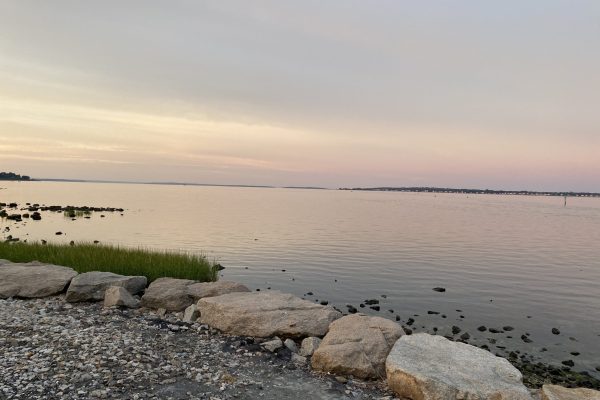As the solar eclipse approaches and we prepare to bear witness, we think about what this astrological phenomenon means to us. As Jews. As non-Jews. As spiritual beings trying to make sense of our place on this Earth.
We offer this ritual guide (including a PDF download and Soundcloud playlist) to accompany you on your journey on April 8, 2024 ~ 29 Adar 5784. Download the ritual guide, excerpted below, for free here.
When we prepare to view the eclipse, we are instructed to avert our eyes from the eclipse’s full blast. We buy or make special glasses to shield ourselves from the intense power that will radiate from behind the moon. We must protect ourselves from harm, from irreversible damage, from unknown consequences. Though we are tempted to look, tempted to stare into the cosmic phenomenon, we know we must veil the shining in the sky.
Where else in the Jewish tradition do we encounter a light like this? So powerful we cannot look? What about the people of Israel at the base of Sinai watching as Moses returns, for the second time, with the Ten Commandments…
After forty days and forty nights, a trope in Jewish texts, Moses descends from Mount Sinai with the Ten Commandments. For over four weeks, Moses has been in a kind of divine vacuum communing with God in ways only he can describe.
While we learn very little about what exactly Moses did while on top of the mountain, we can be sure he spent significant time in God’s presence because it is written in Exodus 34:29, “Moses did not know that the skin of his face was shining from speaking with God.” Moses’ elongated stay in divine presence makes this meeting different from other meetings.
In the entire Bible, this word, קרן to shine, only appears four times. And three of those four times occurs in Exodus 34 all referring to Moses’ radiant face. The fourth occurrence, in Psalms, uses the word in a different form to denote something growing to full development. Words matter, and in a text that has been edited and redacted by so many, the infrequency of this word must be noted.
By being near God’s source, Moses is affected in mind and body. The effects are so intense, the Israelites cannot bear to look upon his face. They feared coming near him. A few lines later, we come to learn Moses veils his face from the people only removing the veil when meeting with God. What can this mean to us as we prepare to witness an eclipse?
From what we know about God’s impact on Moses, perhaps we can consider the divine experience we will have glancing upon the eclipse. We cannot handle the raw solar force beaming above us just as the Israelites could not bring themselves to look at the divinity gleaming from Moses’ face.










